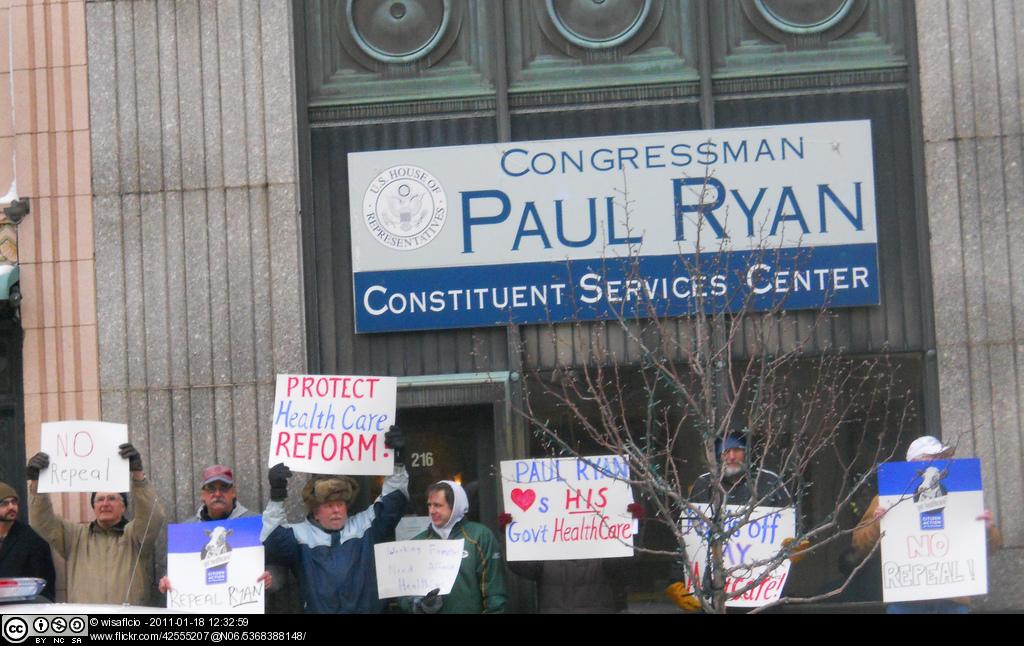
Political Paralysis: Reflections on the Republican Party’s Hold on America
Big vs. small government, Blue vs. Red states, the Union vs. the Confederacy: each of these pairings represents different iterations on a recurring theme in the history of American politics. Now, more than ever in recent memory, these competing ideologies are emerging as polar opposites that threaten to drive the US political establishment into a stalemate. For progressives, there is the warranted fear that this deadlock is quickly devolving into a zero-sum game, in which the extreme conservatism of the Right has already won. As I watched the Tea Party-sponsored Republican debate, I was disturbed by the lack of compassion for the disadvantaged touted by several of the candidates, Ron Paul in particular. Bolstered by applause from the audience, …

China and India in Sudan: an Uncertain Relationship
On June 21, at the Manor Road Building, Oxford University, Daniel Large and Luke Patey discussed the role of China and India in Sudan’s oil sector. This industry is of particular interest today, as on the 9th of July the country will split into Northern Sudan and Southern Sudan. The recent border clashes illustrate the lack of agreement between the two sides about the sharing of oil revenues. The two speakers situate this issue within an international context by contrasting the involvement of China and India and discussing the long-term prospects of Sudan’s oil industry, among other interesting questions. China’s involvement in Africa has become a hot topic in media and political discussions. This has concealed that of other Asian …
Effective governance
The credit crunch and the disillusion with parliamentary democracy prove that there is a problem with the way we govern ourselves, as organisations and states. I would like to propose a solution which, if implemented, would go a long way to providing effective governance, economic growth, and social stability. THE PROBLEM All our existing institutions and regulations failed to prevent the credit crunch, the Madoff and Stanford frauds, the obvious risk of bankers lending to people who can’t afford to repay, and the collapse of numerous financial organisations. The banking crisis was caused by banks knowingly lending to people who couldn’t repay; therefore the crisis was predictable. So why did they do it? Because current governance processes don’t work. In …
Remembering the Orange Revolution
Before the varied attire of Arab Spring protesters, in recent times, revolutions tended to come in colours. Ukraine was awash with orange. Kyrgyzstan chose pink and Georgia rose. Thailand could not make its mind up over red and yellow. Choices varied but in each instance pigmentation signified unity behind certain causes and grievances. Yet in some cases the colours imbued more than solidarity – they bred an artistic renaissance. Last Friday, Olga Onuch, a former DPhil student in the DPIR and now a post-doc at the University of Toronto, and her father, Jerzy Onuch, spoke about the intersection between art and protest. Both know a lot about the topic: it is the subject of Ms. Onuch’s recently completed PhD dissertation …
South Korean Transition: A Mystery Solved By Social Policy Analysis?
On May 24, 2011 at the Nissan Centre, St. Antony’s College, the book “The Korean State and Social Policy: How South Korea Lifted Itself from Poverty and Dictatorship to Affluence and Democracy” was launched. This lively event brought together all five authors of the book: Stein Ringen, Huck-ju Kwon, Ilcheong Yi, Taekyoon Kim and Jooha Lee. Their goal was to explain the mystery of South Korea’s successful and smooth transition from authoritarianism and poverty to an affluent stable democracy. The authors stressed the importance of governance under authoritarian rule, and explored it through the prism of South Korean social policy from 1945 to 2000. Mixed governance, or state’s collaboration with other actors was at the core of the presentation and …

Incommensurability, Incompatibility and Congressman Ryan’s Proposed Budget
The theory of incommensurability presents us with the view that when forced to decide between different options, we may lack the ability to objectively compare the values underlying each alternative. Though our ultimate decision may be grounded in a variety of reasons, the fact of our decision is not proof in itself that the values behind our choice are better than those that we left behind. Some principles may rise above others, according to incommensurabilists, but that means only that they have won the battle in praxis, not in ethics. The impossibility of comparison may exist in some cases, but incommensurability fails to justify the ethics behind the ranking of values in policy matters; without compromise, the valuation of equal …
The Business of Digital Journalism and Why it Matters for Democracy
Many commercial legacy media organizations around the Western world are having a hard time these days, still hit by the impact of the recession on their revenues, and struggling with the different structural adjustments they will have to make as they move from the relatively stable and platform-specific media markets of the mid-twentieth century to the increasingly convergent and overlapping media environment of the 21st century. Newspapers in particular, from national flagship titles over regional powerhouses to local weeklies, are often in trouble. Changes in the business of journalism have potentially profound consequences for our democracies, because private media like newspapers have employed many of the journalists who inform us all (and occasionally misinforms us) about what goes on in …
The Giffords Shooting, the Making of Jared Loughner, and the Danger of Political Rhetoric
Two seemingly unrelated events from last Sunday night: the shooting of Congresswoman Giffords and Derren Brown’s The Heist was on TV in the UK. Let me tie them together. First, for those who aren’t familiar with Derren Brown, he is a brilliant magician, illusionist, hypnotist, and “mind reader”. If you watch his shows, you’ll see that he is a master of psychological techniques. On The Heist, the show that I watched last night, he did something quite extraordinary: he got three middle-class professionals to commit armed robbery– voluntarily. Well, a simulation of an armed robbery anyway. If you haven’t seen Derren Brown, you’re probably thinking that he used actors or accomplices. I don’t think that this was the case. They were …









